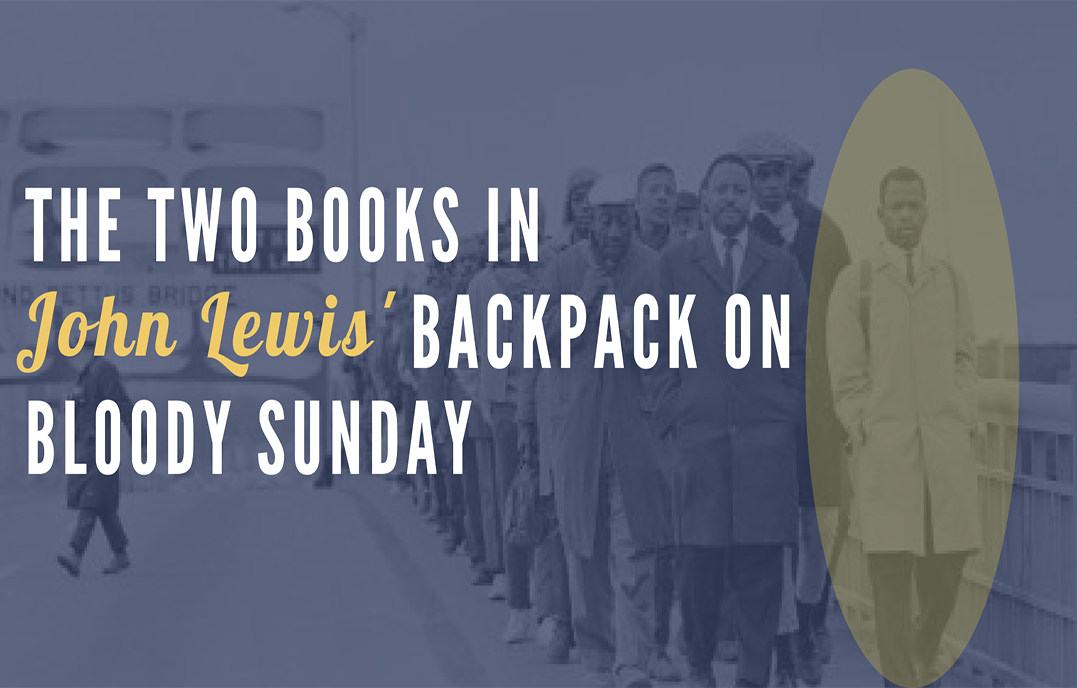On Bloody Sunday, John Lewis wore a backpack. In it, he carried fruit, a toothbrush, and two books. Lewis had expected to spend the night reading in jail. Instead, he spent it in the hospital after his skull was fractured from a police beating. He would carry the scars from that beating at age 25 for the rest of his life. He’d also carry out the rest of his life guided by the principles in the two books in his backpack that Sunday, March 7, 1965.
One book was The American Political Tradition, a reappraisal of this history of the United States written by Richard Hofstadter in 1948. The other book, also first published in 1948, was The Seven Storey Mountain, the autobiography of Catholic monk Thomas Merton and his journey to a life in Christ. It was Christ’s instruction to love thy neighbor that drew Lewis to Martin Luther King’s nonviolent message which they used to speak up against racial injustice in America.
How does a young man find the courage to sit before open hatred at lunch counters and face police lines protected only by an ideal? In a word – love. The monk, Thomas Merton wrote,
Our job is to love others without stopping to inquire whether or not they are worthy. That is not our business and, in fact, it is nobody’s business. What we are asked to do is to love, and this love itself will render both ourselves and our neighbors worthy.
John Lewis left a legacy of love. Not a pollyannaish love, but a durable, tempered conviction that a belief in common humanity and the pursuit of equality will win in the end. “If we get it right here, in America, maybe, just maybe we can be the model for the rest of the world,” Lewis often said.
It’s hard not to judge others in America’s recent history triple underscored by racial, social, and political division. But doing so is what makes love so powerful. Its value increased every time leaders like John Lewis endured physical blows and sacrifice in the name of equality. Lewis believed that America was worth the pain and sacrifice.
Lewis’ love filled him with irrepressible happiness despite all that he’d been through. His life is a monument to love. Now that his journey is over, his life is testimony to the power of love that speaks to us all. The political book in that backpack starts with a quote from the writer John Dos Passos:
In times of change and danger when there is a quicksand of fear under man’s reasoning, a sense of continuity with generations gone before can stretch like a lifeline across the scary present.
John Robert Lewis was that lifeline. His body was put to rest, but his legacy of showing up, speaking out, and moving forward until, as Lewis said, “the revolution of 1776 is complete,” must carry on.
“If not us, then who? If not now, then when?” – John Lewis
Question: How can you use your platform to complete the revolution of 1776?
Driven by the premise that excellence is the result of aligning people, purpose and performance, Center for Executive Excellence facilitates training in leading self, leading teams and leading organizations. To learn more, subscribe to receive CEE News!




